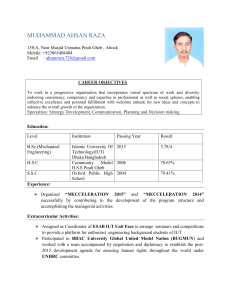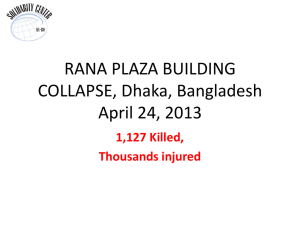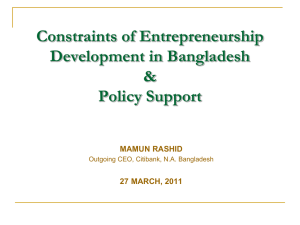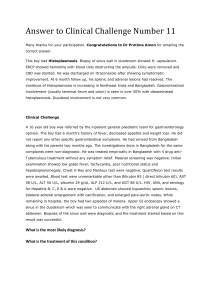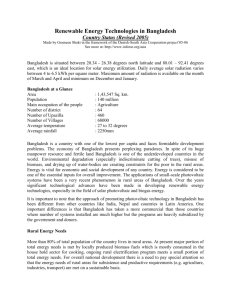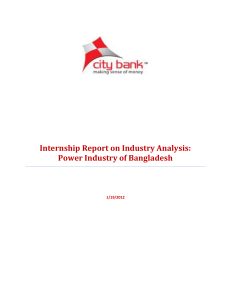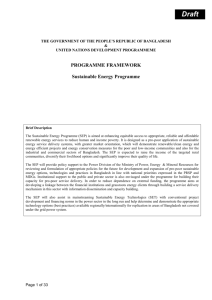AKM Sadrul Islam and Md. Mustafizur Rahman Department of
advertisement
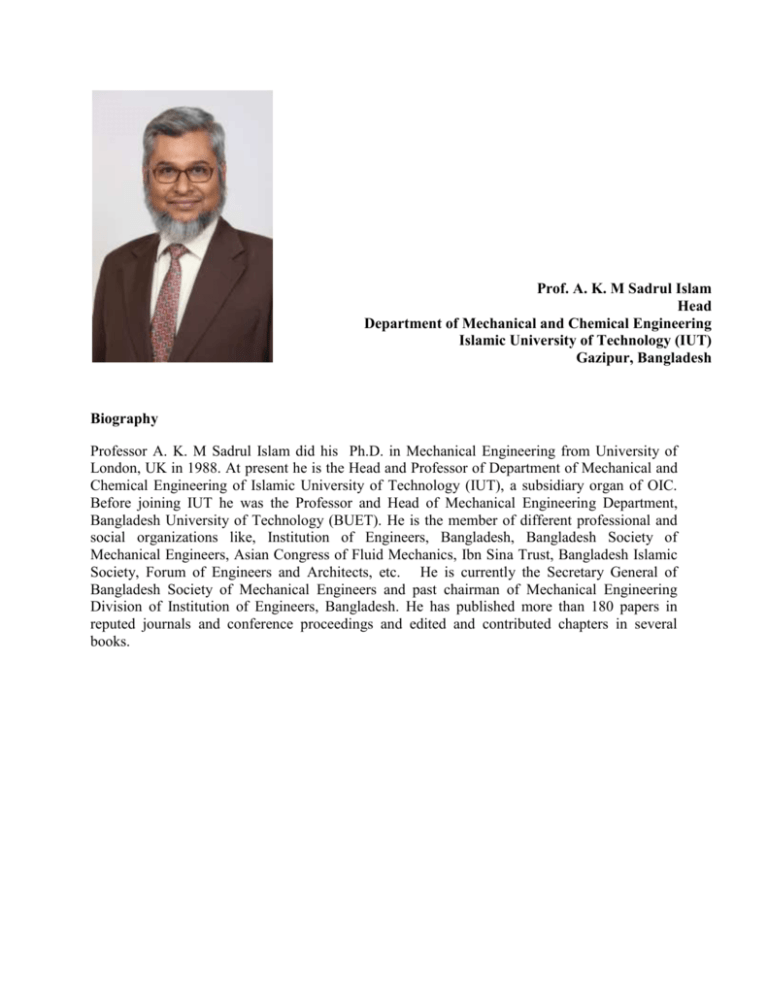
Prof. A. K. M Sadrul Islam Head Department of Mechanical and Chemical Engineering Islamic University of Technology (IUT) Gazipur, Bangladesh Biography Professor A. K. M Sadrul Islam did his Ph.D. in Mechanical Engineering from University of London, UK in 1988. At present he is the Head and Professor of Department of Mechanical and Chemical Engineering of Islamic University of Technology (IUT), a subsidiary organ of OIC. Before joining IUT he was the Professor and Head of Mechanical Engineering Department, Bangladesh University of Technology (BUET). He is the member of different professional and social organizations like, Institution of Engineers, Bangladesh, Bangladesh Society of Mechanical Engineers, Asian Congress of Fluid Mechanics, Ibn Sina Trust, Bangladesh Islamic Society, Forum of Engineers and Architects, etc. He is currently the Secretary General of Bangladesh Society of Mechanical Engineers and past chairman of Mechanical Engineering Division of Institution of Engineers, Bangladesh. He has published more than 180 papers in reputed journals and conference proceedings and edited and contributed chapters in several books. DEVELOPMENT OF RENEWABLE ENERGY SECTOR IN BANGLADESH: IS THE GOAL ACHIEVABLE? A.K.M. Sadrul Islam and Md. Mustafizur Rahman Department of Mechanical and Chemical Engineering Islamic University of Technology Board Bazar, Gazipur, Bangladesh sadrul@iut-dhaka.edu Abstract Bangladesh is a small country with a huge population of 154.7 million (2013 data). Due to increasing population, economic and industrial growth, and aspiration for better living standards, the demand for energy is increasing day by day. Natural gas and oil are the main sources of primary energy supply. In Bangladesh, electricity is mainly produced from natural gas, which is accounted for 63% of the total installed electricity production (11,877 MW), followed by furnace oil (21%) and diesel (8%). The unsatisfied demand of electricity is increasing alarmingly which causes load shedding. Only 53% of the population has access to grid electricity. Areas that are not connected to the national grid, mainly use stand-alone diesel generators for electrification purpose. However, a large number of solar home systems are in operation in the grid remote areas around the country. Combustion of fossil fuel releases greenhouse gases (GHGs) into the atmosphere which is a big environmental concern worldwide. In Bangladesh, power sector is responsible for producing 40% of the total CO2 emissions. The country already started to face problems due to global warming. To save the environment and supply electricity to the mass people who do not have access to grid electricity, it is very important to consider the alternative renewable energy sources. Bangladesh government has a plan to generate 10% of the total electricity from renewable resources (e.g. solar, wind, biomass, hydro, etc.) by 2020.The keynote speech will cover the whole power sector of Bangladesh, especially the renewable energy projects such as solar home system, solar irrigation, electricity from biogas and biomass, wind energy, hydro, mini and micro-grids, etc. To understand the environmental footprint of power generation from different fuel sources, a study has been conducted. Keywords: Power generation, Renewable energy, Carbon footprint
